Maps are a valuable resource often overlooked by family historians. Pam Ross explains why they’re worth exploring.

Maps are often one of the last documents consulted in a family history search, but there’s an argument for moving them further up any list of priorities, particularly now that so many can be accessed online – and free! They can be used as a research tool, a source of information about an area or an individual person, and to provide inspiration for a wider search. The free online collections at The National Library of Scotland and the British Library are phenomenal and even a simple internet search opens up new possibilities.
The British Isles has been divided into different administrative areas during its history. The same village could be covered by different church and state jurisdictions simultaneously. This is difficult to understand without looking at maps, because you might want to see documents from all of the relevant bodies and they won’t necessarily be stored in the same place.
Some searches are blissfully straightforward – the city of Worcester in the county of Worcestershire was in Worcester Church of England diocese, Worcester civil registration district, Worcester poor law union and its parishes have Worcester appended to their saints’ names. Where to start to look for documents? You’ve guessed it: Worcester.
The village of Harborne, however, now part of the city of Birmingham, was initially in Staffordshire, but moved to Warwickshire in 1891. Its civil registers up to 1908 are currently held at Sandwell Register Office. After 1908, Harborne counted as part of Kings Norton registration district, its records currently held by Birmingham Register Office. Kings Norton itself was in the county of Worcestershire. Harborne parish church was in the diocese of Lichfield, which is in Staffordshire. Now would be a good time to reach for a map.
This story is from the April 2017 edition of Who Do You Think You Are? Magazine.
Start your 7-day Magzter GOLD free trial to access thousands of curated premium stories, and 8,500+ magazines and newspapers.
Already a subscriber ? Sign In
This story is from the April 2017 edition of Who Do You Think You Are? Magazine.
Start your 7-day Magzter GOLD free trial to access thousands of curated premium stories, and 8,500+ magazines and newspapers.
Already a subscriber? Sign In
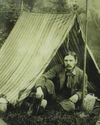
'My Tree Includes The Pioneer Of A Great British Pastime'
Pauline Godsall is proud to share a connection with Thomas Hiram Holding – a true British eccentric who encouraged our forebears to enjoy the great outdoors

30-Minute Genealogist
Sara Khan shows how you can break down brick walls in your research in just half an hour
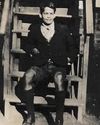
'The FIBIS Database Smashed My Brick Wall'
Edwina Bentley was struggling to find her father’s family in India. Fortunately the Families In British India Society came to the rescue, learns Jon Bauckham
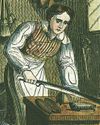
My Ancestor Was A...Brushmaker
Until the arrival of mass production, creating a brush required the hard work of a team of highly skilled craftsmen, says KA Doughty
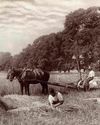
Focus On Manorial Court Rolls
Court rolls are useful for both researching the pre-industrial era and finding your Victorian ancestors, explains Nick Barratt
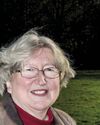
Accidents and Suicides Killed My Ancestors
Alison Burtt grew up with a sense of mystery as her father was unable to tell her much about his roots. The truth she uncovered was shocking, Matt Ford discovers.

Find A New Direction
Maps are a valuable resource often overlooked by family historians. Pam Ross explains why they’re worth exploring.

Cold Comfort
Ice skating is a timeless way to enjoy a wintry day. Amanda Randall looks at how our ancestors got their skates on
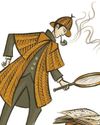
Addicted To The Thrill Of Detection
New Year is a time to cut down on vices – but it’s hard to break the grip of family history, says Alan Crosby
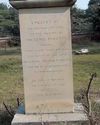
Photographs From India
The Families in British India Society tells Alan Crosby about a project to capture our ancestors’ graves